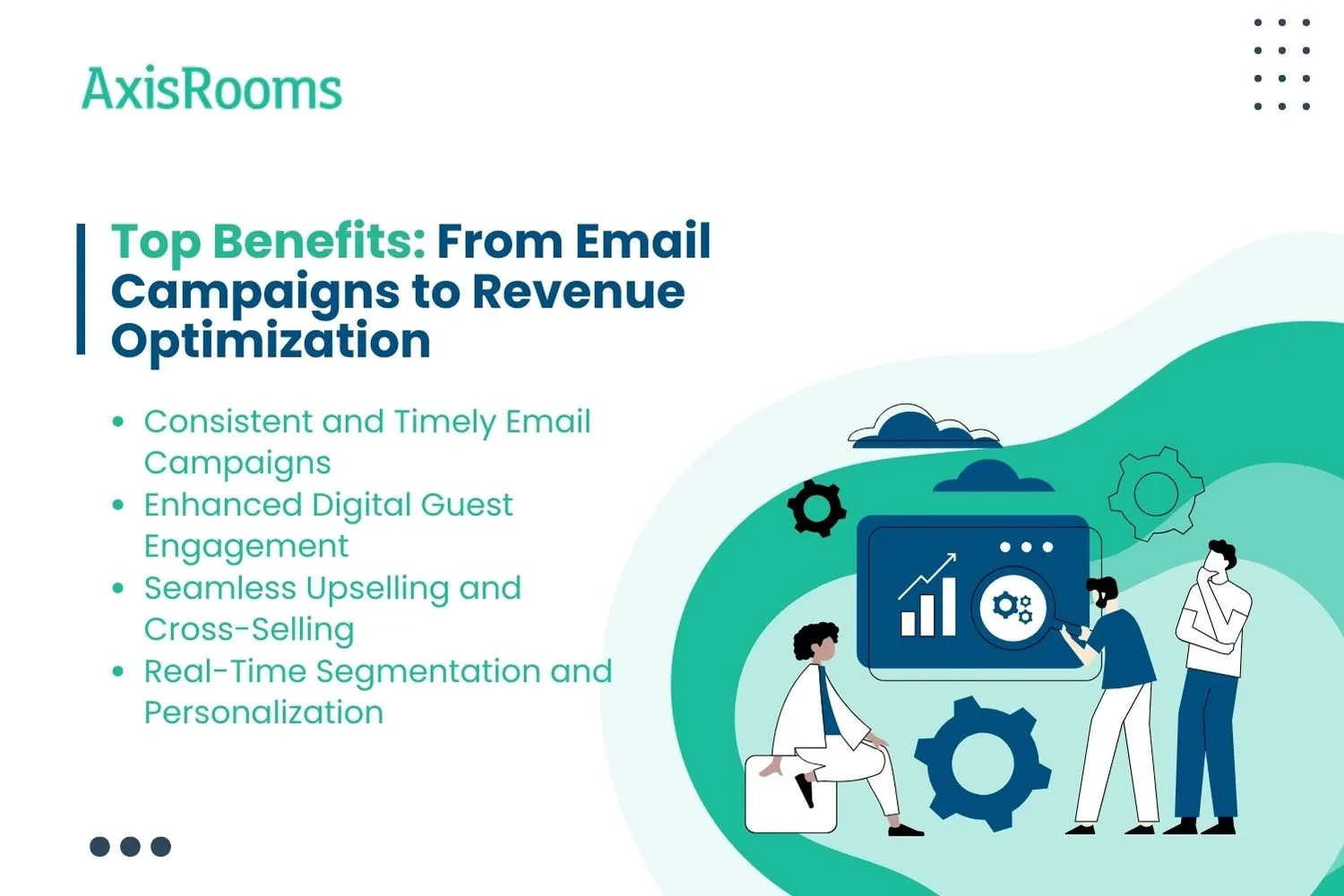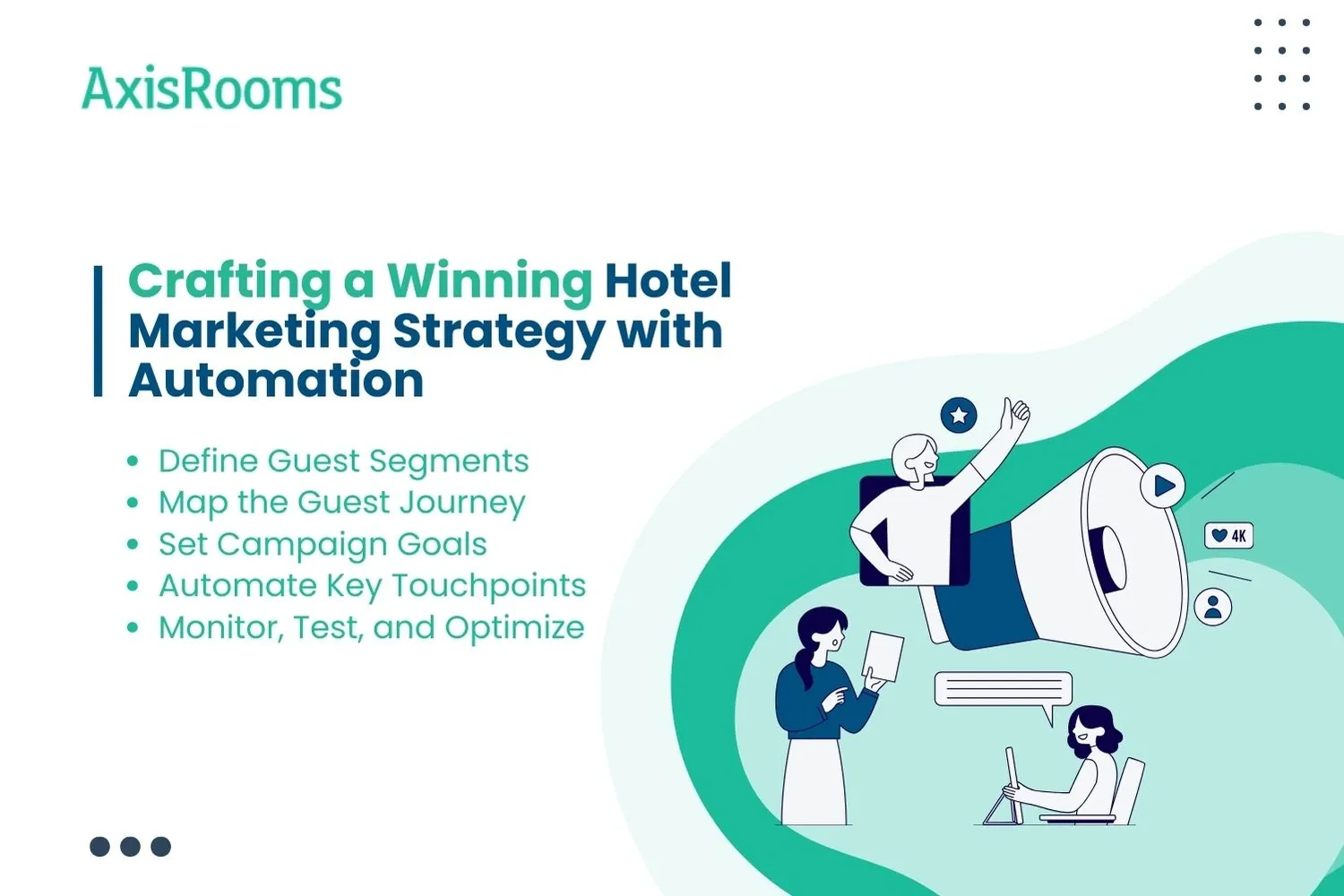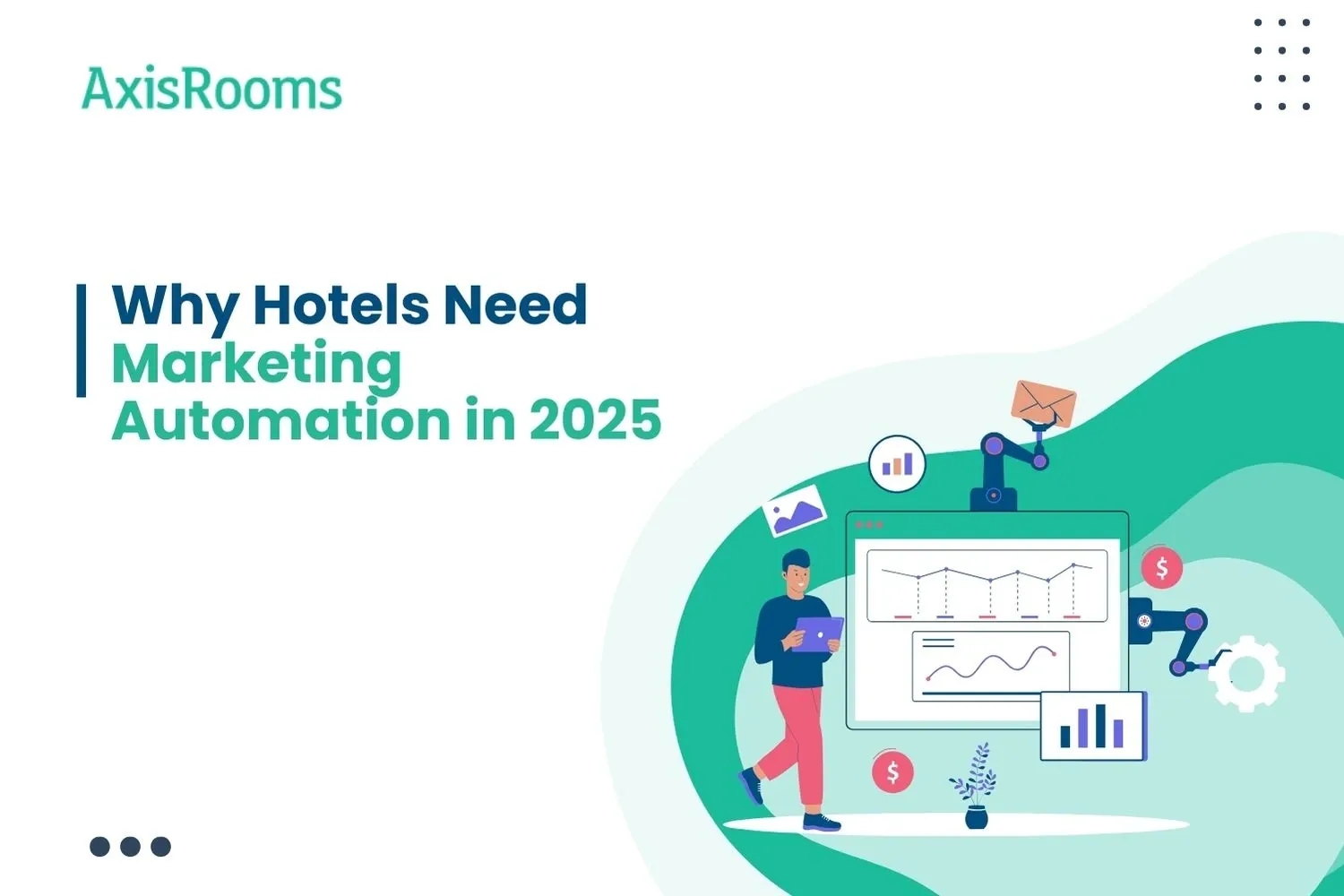In the competitive world of hospitality, staying ahead means embracing innovative strategies that enhance guest engagement and drive revenue. One such strategy is hotel marketing automation—a transformative approach that leverages technology to streamline marketing efforts, personalize guest interactions, and optimize operational efficiency.
What is Hotel Marketing Automation & Why It Matters Today
Hotel marketing automation refers to the use of software and technology to automate repetitive marketing tasks, such as email campaigns, social media postings, and guest communications. By converting manual processes into automated workflows, hotels can deliver timely, relevant, and personalized messages to their guests.
In today's hospitality landscape, several factors underscore the importance of marketing automation:
- Growing Guest Expectations: Modern travelers anticipate personalized experiences and prompt responses. Automation enables hotels to meet these expectations efficiently.
- Shorter Booking Windows: With last-minute bookings becoming more common, automated systems can quickly adapt marketing strategies to capture these opportunities.
- High OTA Dependency: Over-reliance on Online Travel Agencies can erode profit margins. Direct marketing through automation helps reduce this dependency by fostering direct relationships with guests.
Implementing marketing automation offers numerous benefits, including time savings, enhanced personalization, and improved return on investment (ROI). For instance, hotels utilizing automated email campaigns have seen significant increases in guest engagement and repeat bookings.
Top Benefits: From Email Campaigns to Revenue Optimization
Embracing marketing automation in the hotel industry yields several key advantages:

- Consistent and Timely Email Campaigns: Automation ensures that guests receive relevant communications at optimal times, enhancing engagement and conversion rates.
- Enhanced Digital Guest Engagement: Automated systems facilitate seamless interactions across various digital platforms, fostering stronger relationships with guests.
- Seamless Upselling and Cross-Selling: By analyzing guest data, automation tools can identify opportunities to offer additional services or upgrades, thereby increasing revenue.
- Real-Time Segmentation and Personalization: Automation allows for dynamic segmentation of guests based on their behaviors and preferences, enabling highly personalized marketing efforts.
Furthermore, integrating automation with revenue management aligns pricing strategies with guest communications. For example, AI-driven tools can adjust room rates based on demand and notify targeted guest segments about special offers, optimizing both occupancy and revenue.
How to Use Automation for Smarter Email Marketing in Hotels
Email marketing remains one of the most effective channels for hotels to connect with guests. Automation enhances this strategy by:
- Welcome Emails: Automatically send personalized greetings to new subscribers or first-time guests, setting a positive tone for future interactions.
- Abandoned Booking Recovery: Trigger reminder emails to potential guests who started but did not complete a booking, encouraging them to finalize their reservation.
- Pre-Arrival Upselling: Offer room upgrades or additional services before guests arrive, enhancing their experience and boosting revenue.
- Post-Stay Feedback Requests: Solicit reviews and feedback after a guest's stay to gather insights and demonstrate a commitment to improvement.
Best Practices:
- Leverage Guest Behavior Data: Utilize data on past stays, preferences, and interactions to tailor email content.
- Maintain Personalization and Timeliness: Ensure communications are relevant to the individual guest and sent at appropriate times.
- Conduct A/B Testing: Experiment with different subject lines, content, and calls-to-action to determine what resonates best with your audience.
Example: Consider a boutique hotel that implemented automated pre-arrival emails offering spa packages to guests who had previously booked wellness services. This strategy resulted in a 20% increase in spa bookings.
Essential Hotel Marketing Tools That Drive Results
To effectively implement marketing automation, hotels can utilize various tools:
- Customer Relationship Management (CRM) Systems: Platforms like Revinate and Salesforce for Hotels centralize guest information, enabling personalized marketing campaigns.
- Email Automation Tools: Services such as Mailchimp and Active Campaign facilitate the creation and scheduling of targeted email campaigns.
- Chatbots for Guest Messaging: AI-powered chatbots handle common guest inquiries and bookings, providing instant responses and freeing up staff time.
- Revenue Management Tools: Software that analyzes market data to recommend optimal pricing strategies, ensuring competitive rates and maximizing revenue.
Criteria for Choosing the Right Tool:
- Integration with Property Management Systems (PMS): Ensure the tool seamlessly connects with existing systems for efficient data sharing.
- Real-Time Guest Insights: Access to up-to-date information on guest behaviors and preferences is crucial for effective personalization.
- Scalability: The chosen tool should accommodate the needs of single properties as well as multi-property operations.
Crafting a Winning Hotel Marketing Strategy with Automation
Developing an effective marketing strategy involves several steps:

- Define Guest Segments: Identify distinct groups within your clientele based on demographics, behaviors, and preferences.
- Map the Guest Journey: Understand the various touchpoints and experiences a guest has with your hotel, from awareness to post-stay.
- Set Campaign Goals: Establish clear objectives, such as increasing direct bookings by a specific percentage.
- Automate Key Touchpoints: Implement automation at critical stages of the guest journey to enhance engagement and efficiency.
- Monitor, Test, and Optimize: Regularly assess the performance of automated campaigns, making data-driven adjustments to improve outcomes.
Utilizing tools like Google Analytics and HubSpot can provide valuable insights into campaign performance and guest behaviors.
Smart Distribution Meets Smarter Marketing with AxisRooms
This integration of distribution with automated marketing workflows is a cornerstone of an effective hotel marketing strategy, enabling hotels to boost direct bookings, cut OTA commissions, and deliver targeted campaigns that match guest profiles. Seamless PMS integrations further empower hoteliers to sync guest data effortlessly, paving the way for smarter automation, better personalization, and stronger guest engagement—ultimately driving both revenue and loyalty without the manual grind.
Future of Hotel Marketing: Trends & Takeaways
Hotel marketing is rapidly evolving, with automation and AI paving the way for smarter, more personalized guest experiences. One of the biggest trends is the rise of AI-generated content, where artificial intelligence tools help hotels craft tailored emails, social media posts, and landing pages in real time. These tools analyze guest behavior, booking history, and preferences to automatically deliver content that resonates—boosting engagement and conversions without increasing manual effort.
Another major shift is toward voice and mobile-first guest interactions. With more travelers using smartphones and voice assistants to research and book stays, hotels must adapt by optimizing content for voice search and creating mobile-optimized campaigns. This includes automated SMS, WhatsApp messaging, and app notifications that keep guests informed and engaged at every stage of their journey.
Looking ahead, predictive guest behavior modeling will further transform hotel marketing. By analyzing data patterns, automation tools will anticipate guest needs—offering the right service at the right time. Hotels that embrace these trends early will not only stand out from the competition but also build deeper guest loyalty, higher direct bookings, and stronger long-term profitability.


